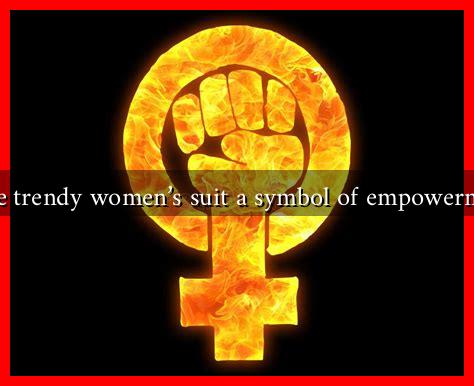-
Table of Contents
Is the Trendy Women’s Suit a Symbol of Empowerment?
In recent years, the women’s suit has transcended its traditional boundaries, evolving into a powerful symbol of empowerment and self-expression. As women increasingly occupy leadership roles in various sectors, the suit has become more than just a fashion statement; it represents a shift in societal norms and expectations. This article explores the significance of the trendy women’s suit in the context of empowerment, examining its historical roots, contemporary relevance, and the messages it conveys.
The Historical Context of Women’s Suits
The journey of the women’s suit began in the early 20th century when women started to enter the workforce in greater numbers. Pioneers like Coco Chanel and Marlene Dietrich challenged the status quo by introducing tailored suits that allowed women to break free from restrictive clothing. These early adopters set the stage for future generations, demonstrating that women could embody both femininity and authority.
- Coco Chanel: Introduced the concept of the “little black dress” and tailored suits that emphasized comfort and style.
- Marlene Dietrich: Wore suits in films, challenging gender norms and showcasing women’s strength.
By the 1980s, the power suit became synonymous with women’s liberation, as figures like Margaret Thatcher and Hillary Clinton donned tailored outfits to assert their authority in male-dominated spaces. This historical context lays the groundwork for understanding the modern women’s suit as a symbol of empowerment.
The Modern Women’s Suit: A Fashion Statement
Today, the trendy women’s suit has evolved into a versatile wardrobe staple that reflects personal style and confidence. Designers like Stella McCartney and Alexander McQueen have reimagined the suit, incorporating bold colors, unique patterns, and innovative cuts. This evolution allows women to express their individuality while still embracing the power associated with traditional tailoring.
- Versatility: Suits can be styled for various occasions, from board meetings to casual outings.
- Inclusivity: Modern suits cater to diverse body types and personal styles, promoting self-acceptance.
- Fashion Forward: Designers are increasingly using sustainable materials, aligning empowerment with environmental consciousness.
The Psychological Impact of Wearing a Suit
Wearing a suit can have profound psychological effects on women. Research indicates that clothing can influence self-perception and behavior. A study published in the journal Social Psychological and Personality Science found that individuals who wore formal clothing experienced increased abstract thinking and a greater sense of power. This suggests that the act of wearing a suit can enhance a woman’s confidence and assertiveness.
Case Studies: Women in Suits Making Waves
Numerous women have embraced the suit as a symbol of empowerment, using it to challenge stereotypes and inspire others. Here are a few notable examples:
- Kamala Harris: As the first female Vice President of the United States, Harris often wears tailored suits that reflect her professionalism and authority.
- Michelle Obama: The former First Lady frequently donned suits during her public appearances, promoting a modern image of femininity and strength.
- Ruth Bader Ginsburg: The late Supreme Court Justice was known for her iconic collars and tailored suits, symbolizing her commitment to justice and equality.
Conclusion: The Suit as a Symbol of Empowerment
The trendy women’s suit has evolved from a mere fashion choice to a powerful symbol of empowerment. It embodies the progress women have made in breaking down barriers and asserting their presence in various fields. As women continue to redefine their roles in society, the suit serves as a reminder of their strength, resilience, and individuality.
In conclusion, the women’s suit is not just a garment; it is a statement of identity and empowerment. As more women embrace this trend, they contribute to a cultural shift that celebrates diversity, confidence, and the breaking of traditional gender norms. The suit is a testament to the ongoing journey toward equality and self-expression, making it a vital part of the modern woman’s wardrobe.

